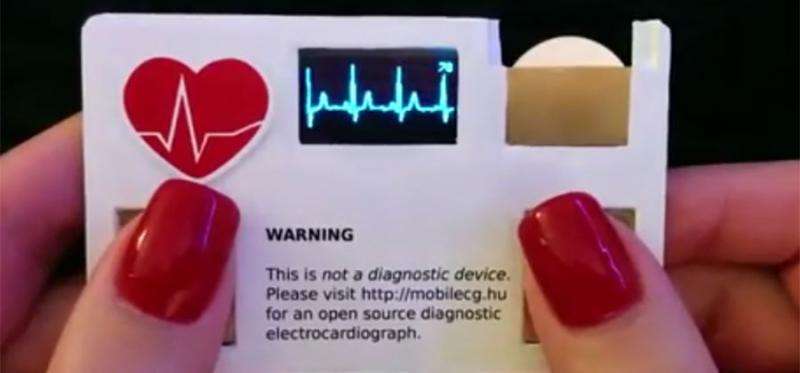Open source in 2016 indicates that engineers and scientists continue to adopt open source to advance their ideas.
Michael Stutz in his piece "Open Source Beyond Software" quoted Creative Commons visionary Lawrence Lessig: "The free software movement has shown us the great value in open code; it should also show us the important value in open content. The same ideals in different domains, for the same important reasons: creativity and innovation."
A Hungarian startup has made their MobilECG II clinical-grade Holter ECG open source. MobilECG was founded by Hungarian engineers in 2013. "Fed up with the unreasonably high price, cumbersome design, and dishonest distribution practices of clinical ECG machines, we decided to create mobilECG, a clinical ECG that is different," they said.
Péter Isza, electronics engineer, is founder, overseer, of a four-person team. They recently posted a video of their MobilECG Business Card, involving the ECG signal between the user's hands.
DamnGeeky's Gaurav Sood wrote about it:
"It measures the user's pulse by placing the two fingers on the scanner section of the card."
The business card is not a diagnostic device, but is an attractive draw to their real product, aimed to help medical practitioners as well as support patients in taking ECG readings. Ubergizmo's Tyler Lee: "To bring attention to their products, they created a business card that actually comes with a working heart rate monitor built into it. However, as the card clearly notes, and as the company points out, it's not really meant to be used as a diagnostic device."
While it is not a diagnostic device, it is good enough to clearly capture the P, Q, R, S and T waves of the ECG signal, said the team, as shown in the video.
On February 26 the team blogged, "Today we posted a clip of our business card toy ECG on 9gag, and it got more than 20k upvotes in a day. If you want one, please let us know." They said they hoped that it "draws your attention to our main product too."
They said they believe that diagnostic devices should be affordable and accessible. The open source Holter ECG which they are building is to be sold nearly at its manufacturing cost. "We are planning to sell it as close as possible to the manufacturing cost, which is between $100 and $150 for the device and approximately $50 for the default set of cables."
They showed their prototype, connected to a mobile device wirelessly.
For patients, the video said owning a clinical grade ECG device would be supported by an online service to track their heart status. As electrocardiograms must always be analyzed by a doctor, they have been developing Internet-based services to connect doctors and patients. An advantage for doctors: they would be able to track the patient's status online and help more people.
"To ensure the availability of a low cost device," they made MobilECG open source. "Anyone can download its hardware design and software source codes for free."
The team said they are working hard to make MobilECG available in 2016. In order to sell a medical device, certification is needed and MobilECG is not publicly available yet. They said, "We are working hard to bring MobilECG to the users as soon as possible."
Also, they noted on the GitHub site that "you can still build one yourself. If you want to build it, feel free to do so. Contact us in case of any problems. There will be soon a technical blog where you will be able to find instructions on building one yourself."
© 2016 Tech Xplore





















